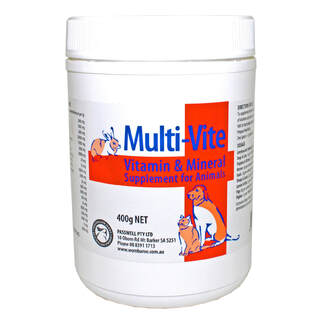Ready to use broad-spectrum worm drench for control of benzimidazole sensitive mature and immature roundworms and lungworm in sheep, cattle and goats
Panacur 25 drench is suitable for sheep and goats.
Features/Benefits
- Effective control of susceptible mature and immature gastro-intestinal roundworms and lungworm in sheep, cattle and goats.
- An aid in the control of tapeworm in sheep and goats.
- Ovicidal action to reduce worm egg hatching
- Low toxicity
Active Constituent 25g/L Fenbendazole.
Dose Rate
Sheep & Goats 1ml per 5kg bodyweight. Over 75kg dose at rate of 1mL per 5kg bodyweight. 15mL Cattle: 15ml per 50kg bodyweight, over 650kg dose rate of 15mL per 50kg
Why Choose Panacur 25
- For your white drench rotation Panacur contains fenbendazole, a member of the benzimidazole drench family.
- Controls Susceptible Roundworms Will control all major internal parasites that are susceptible to a BZ drench. These include barber's pole worm, small brown stomach worm (including inhibited larvae), black scour worm, small intestinal worm, nodule worm, thin necked intestinal worm, large-mouthed bowel worm, large lungworm and whipworm. These worms reduce overall productivity especially in young animals. Weight gains can be reduced by up to 20% and wool growth can be affected significantly. Panacur 25 also aids in the control of tapeworm.
- Short Acting Until now, popular thought has suggested that persistence is a desirable trait in a drench. Some drenches have even promoted their longer persistence as a benefit or been formulated into capsules to provide long action. There is a sting in the tail however persistence breeds resistance. A drench with persistence increases the selective pressure for resistance because it continues to kill susceptible worms whilst allowing resistant worms to reproduce. A shorter acting drench like Panacur 25 is less likely to do this than persistent drenches or drench capsules.
- Registered for Goats There are very few drenches registered for use in goats. Panacur 25 has been used safely by goat producers across Australia for many years, and continues to be one of the more popular drenches used in the goat industry.
- Very Safe Panacur 25 is amongst the safest of all the oral drench formulations available. 6. Ovicidal Fenbendazole is ovicidal in sheep and goats, ensuring that roundworm eggs passed in the dung are rendered infertile, reducing the potential for further pasture. Panacur 25 is given orally at the recommended dose rate of 1ml/5 kg liveweight. Dose the mob according to the heaviest animal by liveweight in the group. Indications: For control of fenbendazole susceptible mature and immature gastrointestinal parasites, lungworm and aids in control of whipworm and tapeworm in sheep and goats. Recommended for use in Sheep of all ages that have worms susceptible to Panacur 25. Sheep younger than 12 months of age should be treated with Firstmectin.
PRECAUTIONS:
Resistance by roundworms is very common to white drenches. A drench resistance test should be conducted prior to using a white drench to be sure of its effectiveness. A ready to use broad-spectrum worm oral drench for control of benzimidazole sensitive mature and immature roundworms and lungworm in sheep, cattle and goats and to aid in control of tapeworm in sheep, cattle and goats.
Panacur 25 is indicated for the control of the following fenbendazole sensitive worms including those resistant to levamisole/morantel: Barbers Pole Worm (Haemonchus contortus); Black Scour Worm (Trichostrongylus spp.); Large Mouthed Bowel Worm (Chabertia ovina); Nodule Worm (Oesophagostomum spp.); Thin Necked Intestinal Worm (Nematodirus spp.); Small Brown Stomach Worm (Teladorsagia spp.); Small Intestinal Worm (Cooperia spp.); Large Lung Worm (Dictyocaulus filaria). COOPERS PANACUR 25 also aids in the control of Whipworm (Trichuris ovis); Tapeworm (Moniezia expansa). Cattle: COOPERS PANACUR 25 is indicated for the control of Barbers Pole Worm (Haemonchus spp.); Small Brown Stomach Worm (Ostertagia spp.); Stomach Hair Worm (Trichostronylus axei); Small Intestinal Worm (Cooperia spp.); Thin Necked Intestinal Worm (Nematodirus spp.); Nodule Worm (Oesophagostomum radiatum); Whipworm (Trichuris ovis); Hookworm (Bunostomum phlebotomum); Capillaria spp; Large Lungworm (Dictyocaulus viviparus).
Withholding Periods:
Meat (Sheep, Goats & Cattle) Do Not Use less than 14 days before slaughter for human consumption Milk (Cattle): NIL. MILK (Goats): Milk collected from goats within 24 hours ([2] milkings) following treatment.
MUST NOT BE USED for human consumption or processing, or fed to kids. MILK (SHEEP): DO NOT USE on lactating or pregnant ewes where milk or milk products may be used for human consumption. Export Slaughter Interval (ESI): Sheep and Cattle: DO NOT USE less than 14 days before slaughter for export. Export Slaughter Interval (ESI): Goats: An ESI has not been established. For advice on the ESI contact. See label for safety and other instructions.






















